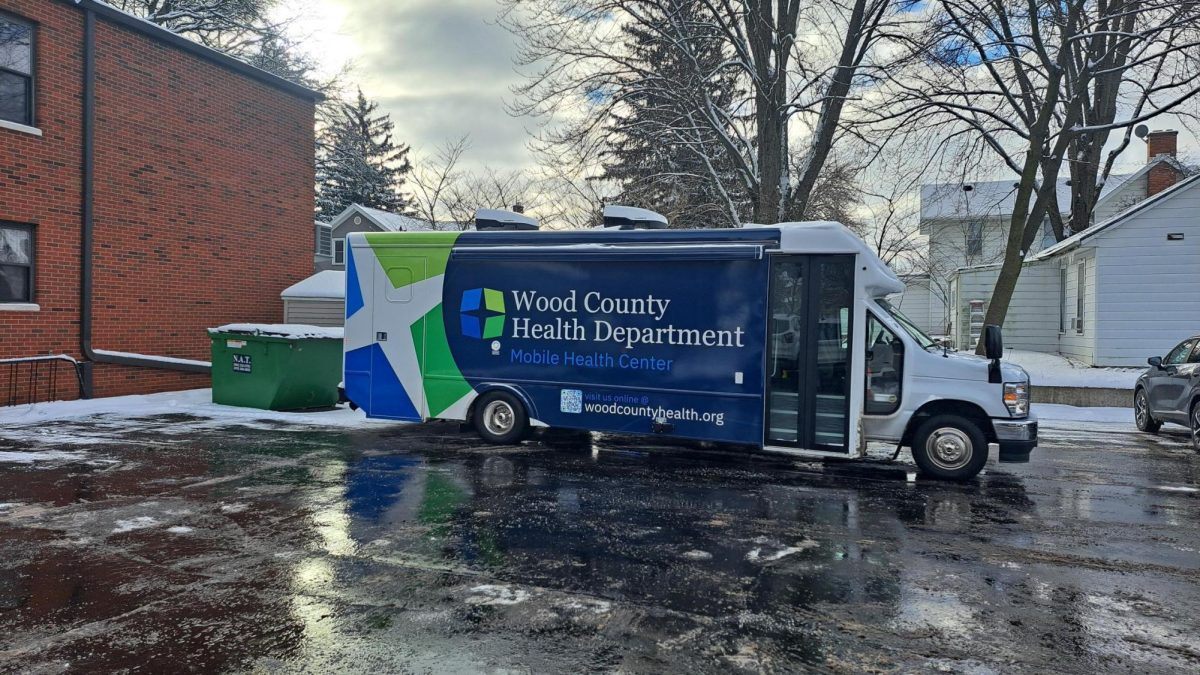To students and community members, the presence of snow on sidewalks may just seem like a nuisance, but to city officials, it’s an ordinance and it’s Code Enforcement Officer Jason Westgate’s job to uphold it.
It’s a city ordinance that residents have to keep the sidewalk in front of their residence shoveled, Westgate said.
Code enforcement goes out 24 hours after it stops snowing to make sure residents are abiding by the ordinance, Westgate said.
Abagail Van Vlerah, a graduate student, said she and her roommates try to make sure they have someone to clear their sidewalks when it snows.
Even though she and her roommates make sure to clear the sidewalk in front of her house, she said she thinks the sidewalks are too snowy and dangerous in front of other houses.
“It’s the only code that doesn’t get enforced, but should,” Van Vlerah said. “When I go for a run in the morning, I run on the street, which isn’t safe.”
When Westgate and other officers see unshoveled sidewalks, they order a contractor to shovel the sidewalk and the homeowner is billed, he said. For second or third offenses, the person is ticketed.
Though it is relevant now, snow removal isn’t the only ordinance Westgate and other Code Enforcement officers have to enforce.
“We’re always looking,” Westgate said. “A lot of it’s complaint-based.”
There are ordinances for the city of Bowling Green regulating animals, garbage, litter, liquor, public health and safety, trees, weeds, streets, sidewalks and more, according to the Bowling Green Code of Ordinances.
Another ordinance officers ticket for is vehicles blocking walks or roadways, according to the Bowling Green Code of Ordinances.
Melinda Lewis, graduate student and Van Vlerah’s roommate, said her friend parked partly on the sidewalk near her house once to help unpack groceries and was ticketed by code enforcement almost immediately.
“It wasn’t a harsh fine, but it was almost immediate,” Lewis said.
When a person is ticketed for a code violation, they have two options, Westgate said.
They can pay it within 10 days or request a hearing, where the hearing officer determines whether they are guilty, Westgate said.
If the fine is not paid within 10 days, the person will be issued a court notice and the fine will be doubled, he said. The fine is also doubled on second offenses, he said.
“Usually they learn after the first one,” Westgate said.
In order to avoid violating an ordinance, students can educate themselves about what the city ordinances are, Westgate said.
The information is usually passed out to off-campus students at the beginning of the semester, Westgate said.
Landlords often put it in leases as well, he said.
“The landlords are doing a good job and putting it in their leases,” Westgate said.
The goal of code enforcement is to keep the neighborhood family-oriented, Westgate said.
“We’re not out to give tickets all day long,” he said. “We try to work with people the best we can.”
To see a full list of code violations and fines, go to www.bgohio.org.



















